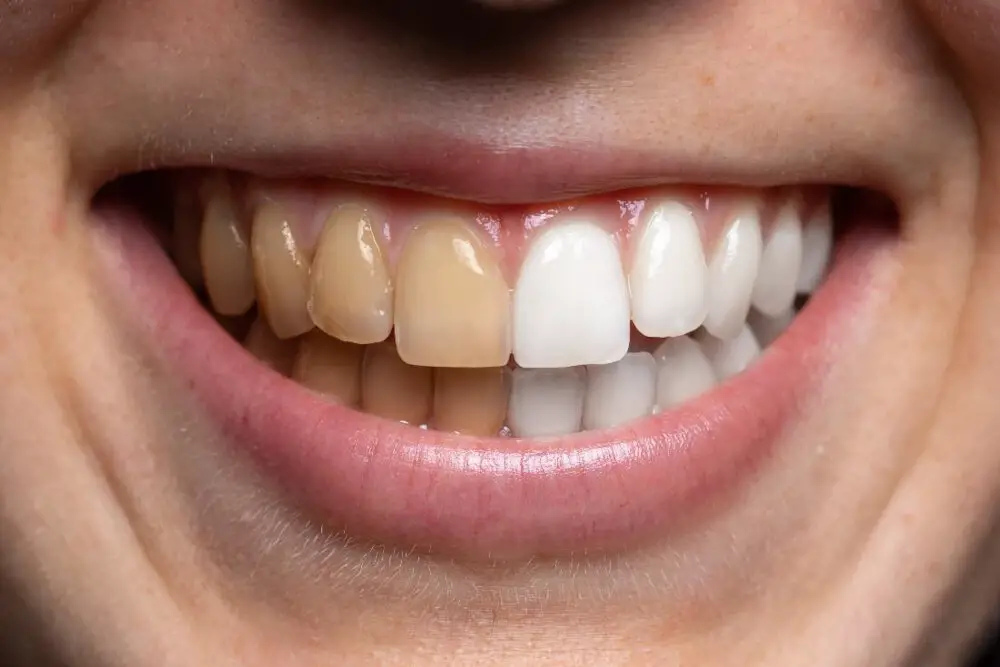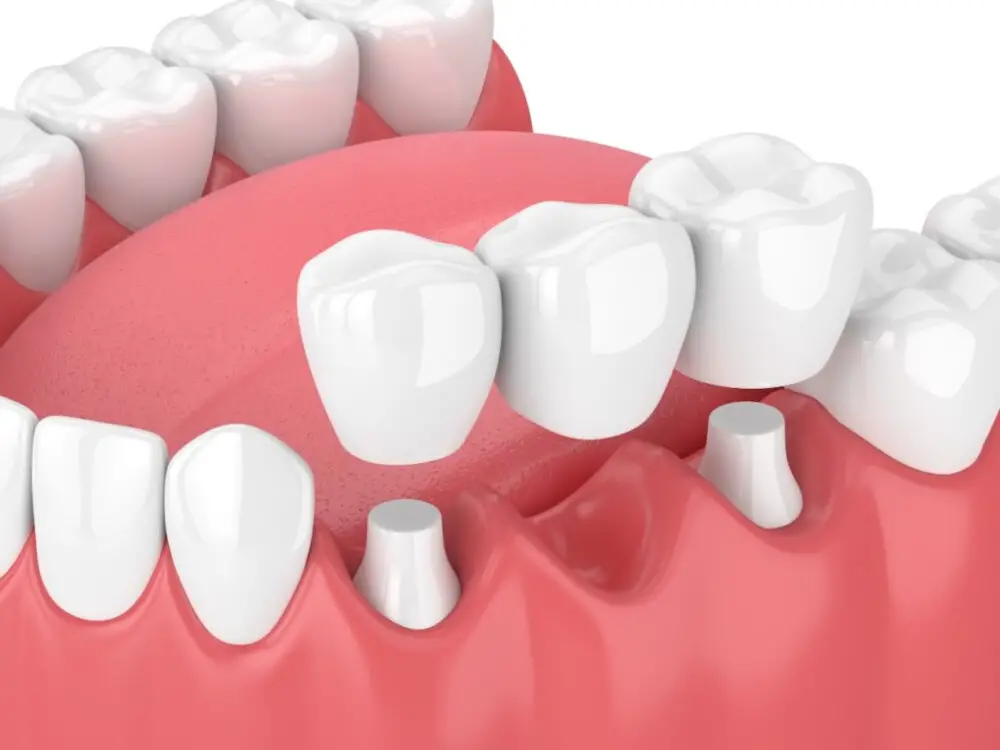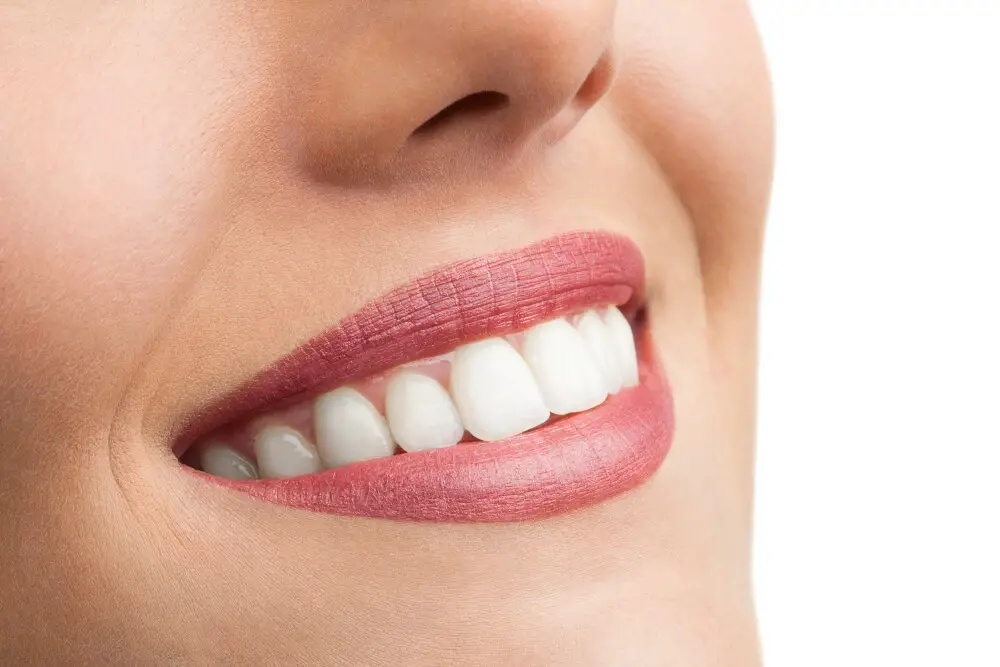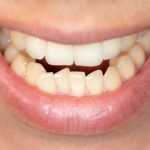Why Do Gums Bleed When Brushing? Causes and Remedies

Gums are an essential part of our oral health, and keeping them healthy is crucial. However, bleeding gums can be a common problem, especially while brushing or flossing. If you have ever experienced bleeding gums while brushing, you are not alone. It is a widespread issue that can happen to anyone, and there are several reasons why it occurs. Understanding the causes and remedies for bleeding gums can help you maintain your oral health and prevent further complications. There are several reasons why gums bleed while brushing, ranging from mild to severe. One of the most common causes is gingivitis, a type of gum disease that occurs due to the buildup of plaque on teeth. When plaque accumulates on teeth, it can cause inflammation of the gums, leading to bleeding. Other causes of bleeding gums include improper brushing techniques, using a toothbrush with hard bristles, vitamin deficiencies, hormonal changes, and certain medications. It is essential to identify the underlying cause to determine the best course of treatment and prevent further complications.
Bleeding gums during brushing can be caused by a number of factors, including improper brushing technique, gum disease, hormonal changes, and vitamin deficiencies. When plaque and bacteria build up on the teeth and gums, they can irritate and inflame the gums, leading to bleeding when brushed. This is why it’s important to brush gently with a soft-bristled toothbrush and to floss regularly to remove any build-up between the teeth. If bleeding persists, it may be a sign of gum disease, which can be treated by a dentist or periodontist. Ensuring a balanced diet rich in vitamin C and K can also help improve gum health and prevent bleeding.
Maintaining good oral hygiene is crucial for overall health and well-being. Poor oral hygiene can lead to a variety of dental problems such as cavities, gum disease, and bad breath. Bleeding gums during brushing can also be a sign of gum disease, which can progress and lead to tooth loss if left untreated. Regular brushing, flossing, and dental check-ups can help prevent these issues and maintain healthy teeth and gums. A healthy mouth also has a positive impact on self-esteem and confidence, as well as reducing the risk of other health problems such as heart disease and diabetes. Therefore, it is essential to prioritize good oral hygiene habits to ensure a healthy and happy smile.
Causes of Bleeding Gums

Bleeding gums can be a sign of poor oral health and hygiene, and it can be caused by various factors. One of the most common causes of bleeding gums is gingivitis, which is a mild form of gum disease. Gingivitis occurs when plaque builds up on the teeth and gums, causing inflammation and irritation. This can lead to bleeding when brushing or flossing. Other factors that can contribute to bleeding gums include using a hard-bristled toothbrush, brushing too hard, or using an abrasive toothpaste. These actions can cause damage to the gums, leading to bleeding and discomfort. Another cause of bleeding gums is hormonal changes, particularly during pregnancy. Women who are pregnant may experience bleeding gums due to an increase in hormones that can cause the gums to become more sensitive and prone to bleeding. Medical conditions such as leukemia, bleeding disorders, and vitamin deficiencies can also cause bleeding gums. In some cases, certain medications may cause bleeding gums as a side effect. It is important to visit a dentist if you experience bleeding gums, as they can help identify the cause and recommend appropriate treatment.
Gingivitis and other gum diseases are common dental problems that affect millions of people worldwide. Gingivitis is caused by the buildup of plaque on the teeth and gums, which can lead to inflammation and bleeding. Other gum diseases include periodontitis, which is a more severe form of gingivitis that can lead to tooth loss, and gum recession, which occurs when the gums pull away from the teeth, exposing the roots. These conditions can be caused by poor oral hygiene, smoking, certain medications, and underlying health conditions. Treatment for gum disease may include professional cleaning, medication, or surgery, depending on the severity of the condition. It’s important to practice good oral hygiene and visit a dentist regularly to prevent and treat gum disease.
It is a well-known fact that pregnancy brings about various changes in the body, and hormonal changes are one of the most significant ones. During pregnancy, the body produces a higher level of estrogen and progesterone hormones, which affects the blood vessels’ elasticity and the immune system’s response. These hormonal changes can cause the gums to become more sensitive and prone to inflammation, leading to bleeding while brushing. Moreover, the increase in blood flow can cause the gums to appear redder and swollen, which is known as pregnancy gingivitis. Therefore, it is essential to maintain good oral hygiene and seek dental care during pregnancy to prevent any complications.
Vitamin deficiencies can lead to a number of health problems, including bleeding gums. Vitamins such as C, K, and B complex are essential for maintaining healthy gums and preventing inflammation. A lack of these vitamins can lead to a weakened immune system, making it easier for bacteria to thrive in the mouth and cause gum disease. In addition, vitamin deficiencies can slow down the healing process, making it more difficult for the gums to recover from damage caused by brushing or other irritants. To prevent vitamin deficiencies, it is important to eat a well-balanced diet that includes plenty of fruits, vegetables, and whole grains. In some cases, supplements may be necessary to ensure that the body is getting the nutrients it needs to maintain healthy gums and overall health.
Blood thinning medications, also known as anticoagulants, are prescribed to prevent blood clotting in individuals with certain medical conditions such as deep vein thrombosis, atrial fibrillation, or heart valve disease. These medications work by interfering with the blood clotting process, which can increase the risk of bleeding. Commonly prescribed blood thinners include warfarin, heparin, and aspirin. While these medications are effective in preventing blood clots, they can also cause bleeding gums, especially when combined with poor oral hygiene. It is important for individuals taking blood thinners to maintain good oral hygiene habits, including regular brushing and flossing, and to inform their dentist of their medication use.
Remedies for Bleeding Gums

Bleeding gums are a common dental issue that can be caused by several factors, including poor oral hygiene, vitamin deficiencies, and gum disease. Fortunately, there are several remedies that can help alleviate bleeding gums and improve overall oral health. One of the most effective remedies is to maintain good oral hygiene habits, such as brushing twice a day and flossing regularly. Brushing helps remove plaque and bacteria from the teeth and gums, while flossing can remove food particles and debris from between the teeth. Using an antiseptic mouthwash can also help kill bacteria and prevent gum disease. Another effective remedy for bleeding gums is to improve your diet and take supplements if necessary. Vitamin C is an essential nutrient that plays a vital role in maintaining healthy gums. Eating foods rich in vitamin C, such as oranges, bell peppers, and strawberries, can help prevent bleeding gums. Additionally, taking supplements can help ensure that you are getting enough of this important nutrient. Other supplements that may help alleviate bleeding gums include vitamin K, which is essential for healthy blood clotting, and vitamin D, which can help improve gum health and reduce inflammation. Ultimately, the best way to prevent bleeding gums is to maintain good oral hygiene habits and seek professional dental care as needed.
Regular brushing and flossing are essential for maintaining good oral health. Brushing helps to remove plaque and bacteria from the teeth and gums, while flossing helps to clean between the teeth and along the gum line. When done consistently, these habits can help to prevent gum disease, tooth decay, and other dental problems. However, if you experience bleeding gums when brushing or flossing, it may be a sign of an underlying issue such as gum disease or improper brushing techniques. In such cases, it is important to seek the advice of a dental professional to determine the cause and appropriate treatment.
Using a soft-bristled toothbrush is crucial to maintaining healthy gums and preventing bleeding during brushing. Hard-bristled toothbrushes can cause damage to the gums, leading to inflammation and bleeding. Soft-bristled toothbrushes, on the other hand, are gentle on the gums and still effective at removing plaque and debris from teeth. It’s important to brush with a gentle circular motion and avoid applying too much pressure to the brush. Additionally, replacing your toothbrush every three to four months or sooner if the bristles become frayed can also help prevent bleeding gums. By using a soft-bristled toothbrush and practicing good oral hygiene, you can keep your gums healthy and avoid the discomfort of bleeding while brushing.
Rinsing with an antiseptic mouthwash is an effective way to prevent and treat bleeding gums caused by brushing. Antiseptic mouthwashes contain ingredients that kill bacteria and germs that cause gum disease and inflammation. These mouthwashes also help to reduce plaque buildup and freshen breath. Using an antiseptic mouthwash regularly can help to keep gums healthy and prevent bleeding. It is important to choose an antiseptic mouthwash that is alcohol-free and has been approved by dental professionals. Along with regular brushing and flossing, incorporating an antiseptic mouthwash into your oral hygiene routine can help to promote healthy gums and prevent bleeding.
Eating a balanced diet that is rich in vitamins and minerals is essential for maintaining healthy gums and preventing bleeding during brushing. Vitamin C is especially important for gum health, as it helps to strengthen the connective tissues that hold teeth in place. Other important vitamins and minerals include vitamin D, calcium, and magnesium, which all play a role in maintaining strong teeth and bones. Foods that are rich in these nutrients include leafy greens, dairy products, nuts and seeds, and citrus fruits. By incorporating these foods into your diet on a regular basis, you can help to ensure that your gums stay healthy and free from bleeding.
Seeking professional dental care is crucial when it comes to maintaining good oral health. If your gums bleed while brushing or flossing, it may indicate an underlying problem that needs to be addressed. A dental professional can perform a thorough examination, identify the cause of the bleeding, and recommend the appropriate treatment. Ignoring the issue can lead to more serious problems like gum disease, which can cause tooth loss if left untreated. Regular dental check-ups and cleanings can also help prevent future bleeding and keep your teeth and gums healthy. Don’t delay seeking professional care if you notice bleeding gums, as early intervention can save you from more extensive and expensive treatments in the future.
Prevention of Bleeding Gums

Bleeding gums are a common problem faced by many individuals. However, it is important to take steps to prevent bleeding gums in order to maintain good oral health. One of the most important things you can do is to maintain good oral hygiene. This means brushing your teeth twice a day and flossing regularly. Brushing helps to remove plaque and bacteria from your teeth and gums, which can help to prevent gum disease. Flossing removes food particles and plaque from between your teeth, which can also help to prevent gum disease. It is important to use a soft-bristled toothbrush and to brush gently to avoid damaging your gums. Another important step in preventing bleeding gums is to maintain a healthy diet. A diet rich in vitamins and minerals can help to keep your gums healthy. Vitamin C is particularly important for healthy gums, so be sure to include plenty of fruits and vegetables in your diet. Avoid sugary and starchy foods, as these can contribute to the growth of bacteria in your mouth. Finally, it is important to see your dentist regularly. A dental check-up can help to identify any problems with your gums and teeth early on, so that they can be treated before they become more serious. By following these simple steps, you can help to prevent bleeding gums and maintain good oral health.
Consistent oral hygiene routine is vital for maintaining healthy teeth and gums. Brushing twice a day for at least two minutes, flossing daily, and using mouthwash are some of the ways to maintain good oral health. Neglecting to follow a consistent oral hygiene routine can lead to the buildup of plaque, which can cause gum disease and even tooth loss. Bleeding gums while brushing can be a sign of gum disease, but it can also be a result of brushing too hard or using a toothbrush with hard bristles. It’s important to consult with a dentist to determine the cause of bleeding gums and to establish a proper oral hygiene routine.
Regular dental checkups are crucial for maintaining good oral health and preventing bleeding gums. During these checkups, a dentist can identify early signs of gum disease and offer appropriate treatment options. Moreover, professional teeth cleaning can remove plaque and tartar buildup that can cause gum irritation and bleeding. Neglecting regular dental checkups can lead to more severe gum problems, which can result in tooth loss and other health issues. Therefore, it is essential to schedule routine dental appointments and follow proper oral hygiene practices to keep your gums and teeth healthy.
Avoiding tobacco products is a crucial step towards maintaining healthy gums. Tobacco contains harmful chemicals that can damage the gums and teeth, leading to bleeding when brushing. Nicotine in tobacco reduces blood flow to the gums, making it harder for them to fight off infections and heal properly. Long-term tobacco use can also increase the risk of gum disease and oral cancer. By quitting tobacco products, individuals not only improve their oral health but also their overall health and well-being. It is important to consult with a healthcare professional or seek support from a smoking cessation program to successfully quit tobacco.
Managing stress levels is crucial to maintaining good oral health, as stress can weaken the immune system and increase inflammation in the body, including the gums. In addition to practicing good oral hygiene habits like brushing and flossing regularly, individuals can reduce stress by engaging in relaxation techniques such as deep breathing, meditation, or yoga. Exercise, getting enough sleep, and maintaining a healthy diet can also help reduce stress levels. Seeking support from friends, family, or a therapist can also be beneficial in managing stress levels and improving overall well-being. By taking care of both physical and emotional health, individuals can help prevent gum bleeding and other oral health issues.
Bleeding gums can be a red flag for gum disease or other underlying health conditions that require attention. When gums bleed during brushing, it could be due to the accumulation of plaque and tartar, which irritate and inflame the gums, leading to gingivitis or periodontitis. Additionally, bleeding gums can be caused by vitamin C deficiency, hormonal changes during pregnancy, or medications that affect blood clotting. It is crucial to consult a dentist if you experience persistent bleeding gums, as they can help identify the underlying cause and recommend appropriate treatment, such as scaling and root planing, antibiotics, or lifestyle changes. Proper oral hygiene, including brushing and flossing regularly, can also help prevent bleeding gums and keep your gums healthy.
Maintaining good oral hygiene is crucial to prevent bleeding gums and promote overall oral health. Brushing teeth twice a day with a fluoride toothpaste, flossing daily, and using an antiseptic mouthwash can help remove plaque and bacteria from the teeth and gums. It’s essential to use a soft-bristled toothbrush and brush gently to avoid injuring the gums. Besides, visiting a dentist for regular check-ups and cleanings can help identify potential health concerns early and address them promptly. Some health concerns that can cause bleeding gums include gingivitis, periodontitis, vitamin deficiencies, and bleeding disorders. Preventive measures like maintaining good oral hygiene and seeking treatment for underlying health issues can help keep gums healthy and prevent bleeding.
Conclusion

In conclusion, gum bleeding during brushing is a common problem that affects many people, but it should not be ignored. The causes can vary from poor oral hygiene, gum disease, vitamin deficiencies, to underlying medical conditions. However, the good news is that there are many remedies available to treat and prevent gum bleeding, ranging from proper brushing and flossing techniques, regular dental check-ups, to a healthy diet and lifestyle. It is important to address this issue promptly to prevent further damage to your gums and teeth, and to maintain good overall oral and systemic health. By adopting good oral hygiene habits and seeking professional help when needed, you can keep your gums healthy and prevent gum bleeding from becoming a persistent problem.







